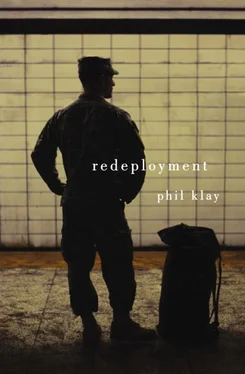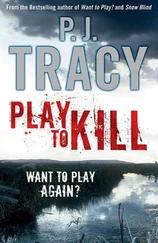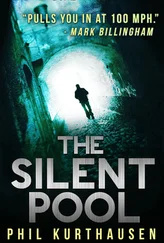Here’s what you won’t get from Vockler, who quickly became known in the battalion as “the guy Deme died saving.” The highlights:
After the (unidentified) enemy opened up on his squad in a narrow alley, Sergeant Deme rushed to the front of the squad, realized he had three helplessly wounded men, organized suppressive fire, and ran into the kill zone to rescue his guys. I don’t have any experience with combat, and I certainly don’t have any experience with organizing suppressive fire, running into kill zones, or rescuing people, but I’m reliably informed by Marines who know about those things that it takes huge fucking balls.
With bullets flying everywhere, ricocheting off the narrow walls of the alley like some pinball machine of death on tilt, Sergeant Deme ran up and grabbed the unconscious Vockler by his flak and pulled him out of danger. Then he ran back and was pretty much immediately shot in the face. So it’s more accurate to say that Sergeant Deme died while trying unsuccessfully to save the lives of the other two Marines in Vockler’s fire team than it is to say he died saving Vockler.
As an added bit of irony, Vockler might not have even died if Sergeant Deme had left him there. Unlike the other two Marines, who were bleeding out in an exposed position, Vockler was neither in any immediate danger nor in need of immediate medical care. An AK round had smacked into the top left side of his helmet, true, but it hadn’t penetrated. The force of the glancing shot knocked Vockler out and sent him sprawling backward into a relatively safe position behind a marginal bit of cover in the trash-filled alley. So it’s possible Deme could have left Vockler there.
Nobody ever told this to Vockler. As far as he knew, he went through a second of gunfire and terror, got shot (sort of) in the head, and woke up to his squad telling him that Sergeant Deme, whom he revered, had proven once and for all how goddamn Marine he was by dying in the most heroic way a Marine can—saving your stupid, worthless, not-even-badly-injured-enough-to-need-a-MEDEVAC ass.
None of this discounts Deme’s heroism, but if Vockler knew the full truth, it’d weigh on him even heavier than it already did. Unlike your average American citizen, Vockler could locate who had died for him in a particular human being. A particular human being he’d known and loved with the sort of passion Marines have for good combat leaders. Even most marriages can’t compare with that, because most partners in a marriage aren’t routinely aware that they’d be way more likely to get killed every day if their partner wasn’t such a hell-of-a-baller spouse. So to add to that the notion that, hey, maybe Deme could have left you where you were and possibly saved one of your fire-team buddies before getting himself killed… that wouldn’t help.
Rough, even to get it secondhand. The experience of talking to Deme’s squad put life into all the phrases I’d seen trotted out in all the awards I’d ever processed. And this wasn’t just any write-up. It was for the Medal of fucking Honor, which a part of me knew wasn’t going to happen, but still, it didn’t matter. Deme would get something, maybe even the Navy Cross, and he’d at least be considered for the big one. Just writing the words was exciting.
Medal of Honor recipients are the saints of the Corps. You’ve got Dan Daly in Belleau Wood and Smedley Butler in the Banana Wars and close to three hundred others in American conflicts stretching from the Civil War to the present day.
So I wrote the citation with my every frustration melting away in the excitement of the thing. Like reaching out with my fingers and touching a god through the keyboard of my computer. My job, I felt, meant something.
I even wrote about Deme in the personal statement I submitted, midway through the deployment, as part of my application to law school.
“Even the best adjutants aren’t saving lives, like Sergeant Deme, or risking their life on daily patrols, like your average grunt. But the best of us make sure those sacrifices are honored by providing them the administrative support they need, whether it be getting them absentee ballots or in assisting them with their wills. There isn’t any glory in this kind of work. The adjutant’s job is generally only noticed when it goes wrong. Both of my deployments have been spent at a desk, relieving Marines of burdens they will never know could have existed. That’s enough for me. It’s more than enough. And it’s what has led me to desire a public interest career in law.”
What I didn’t mention was that the death toll for our battalion by the end of the deployment was five, meaning that alley had been responsible for more than half of our total casualties. I also didn’t mention that that alley was in an area where the previous commander had warned our battalion to avoid aggressive patrolling. “We’re not going to see success here until we develop better relationships with the local population,” he’d said.
The reaction of the unit had been unanimous: “Those guys are idiots! We’re Marine infantry! We don’t avoid the enemy, we close with and destroy the enemy!” Lieutenant Colonel Motes, our CO, had an aggressive style, and the battalion didn’t really get on the COIN train until afterward.
That he’d sent his platoon into a death zone was not lost on Boylan, who had spent every moment since second-guessing every decision he made, convinced better leadership could have saved those Marines’ lives. His instincts about that were probably right. Boylan came back to the States thirty pounds lighter than when he’d left—skeletal, with bruise-purple skin underlining eyes that looked out from the bottom of an ocean. I’d never had a personal relationship with any of the five fallen Marines, so I tended to think of their deaths with a solemn, patriotic pride rather than the self-loathing and self-doubt so clearly tearing Boylan to shreds.
When we got back from Iraq he was a mess, embarrassing himself at the Marine Ball, blacking out every weekend and probably weekdays, too. I remember him one time walking into the admin office, eight in the morning, hung over, with a huge dip of chewing tobacco in his lip, asking, “Anybody got a dip cup?” Nobody wanted to let him spit into anything they owned, so he shrugged, said, “Ahhhh, fuck it,” and then grabbed the collar of his cammie blouse and spit into his shirt. The Marines talked about it for weeks.
That was one approach. Vockler had another. Pretty much as soon as we got back, he’d started angling to get on a deployment to Afghanistan. Iraq was running down; that much was already clear by the tail end of our deployment. So he stalked a company commander from 1/9 until he got them to reserve a line number for him. Which led him to the admin office, my office, and instead of having my Marines handle his shit, I had them send him in to me. I wanted to see him again, face-to-face.
“So you want to go to Afghanistan?” I said.
“Yes, sir, that’s where the fighting is.”
“1/9,” I said. “The Walking Dead.” As battalion mottos go, they’ve probably got the best. Thanks to Vietnam, 1/9 boasts the highest killed in action rate in Marine Corps history. Marines, who like to think of themselves as suicidally aggressive rabid dogs and who sometimes even live up to that self-image, consider this “cool.”
“Yes, sir.”
“You know,” I said, “they set minimum dwell time for a reason. Just because you think you’re ready to deploy again doesn’t mean you are.”
“There’s a lot of Marines from 1/9 who’ve never deployed, sir.”
“And you’ve got the experience they need?”
“Yes, sir. They’ll need good NCOs.”
Marines often speak to officers in platitudes, so it’s sometimes hard to tell how much of what they’re saying they actually believe.
Читать дальше












